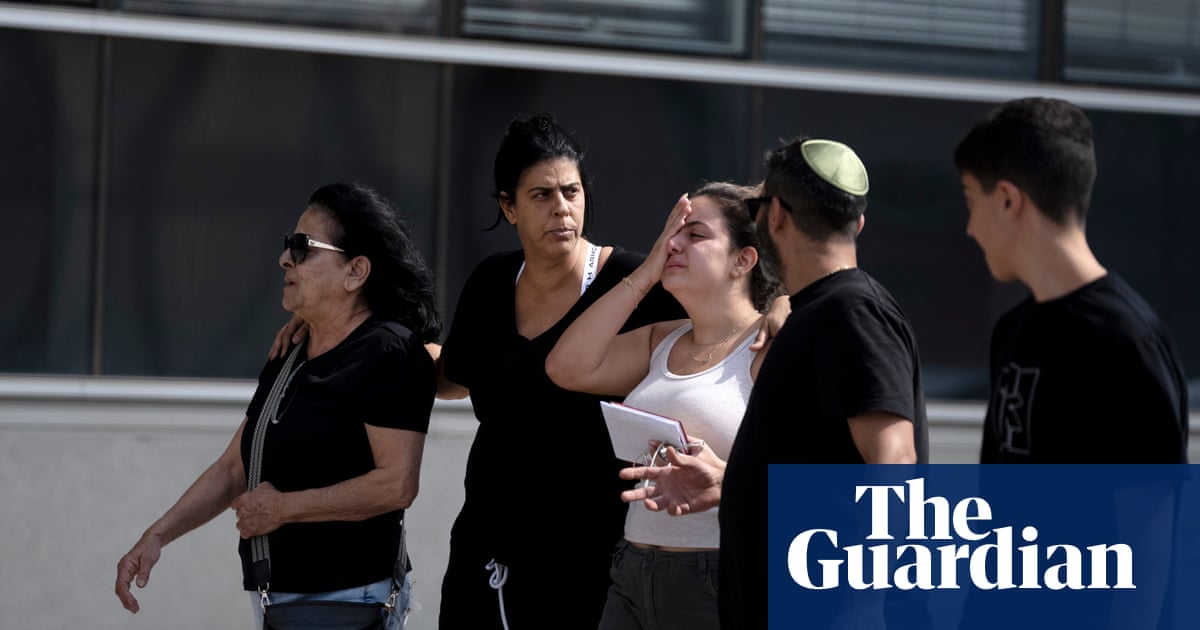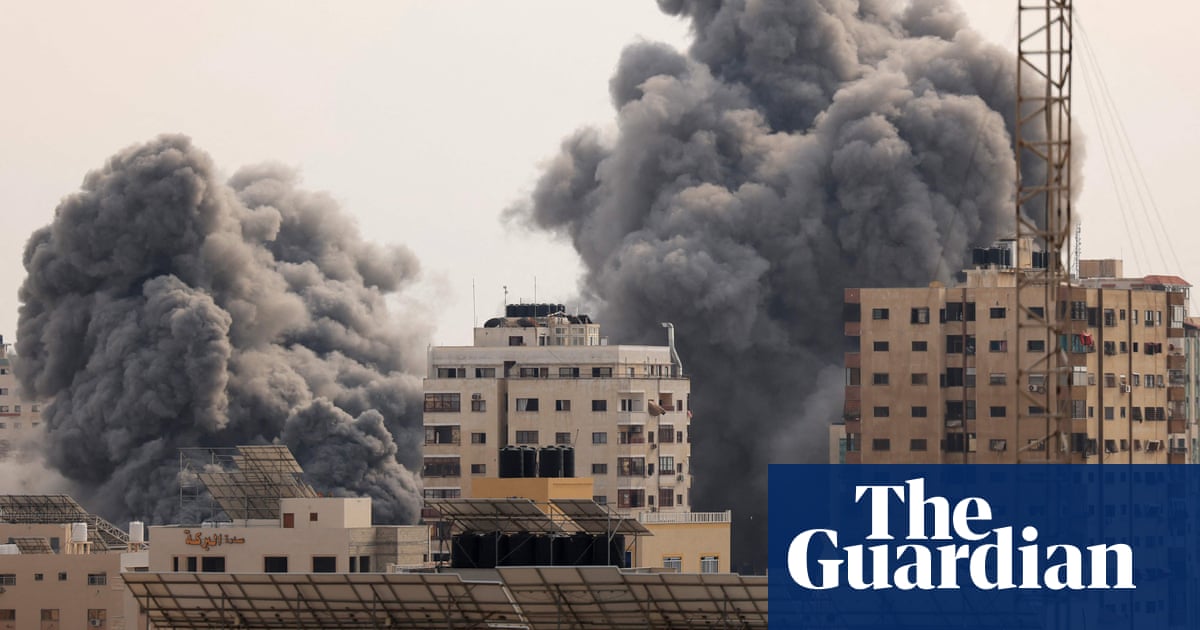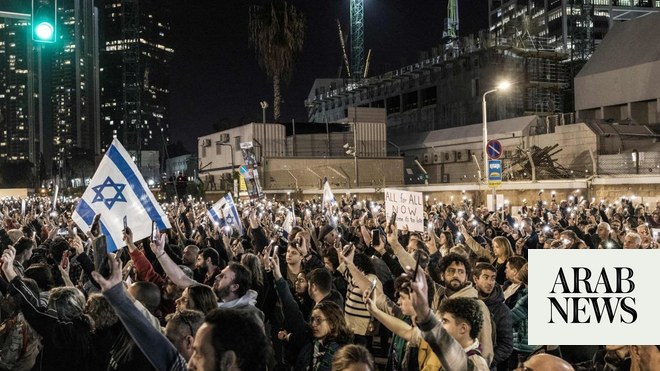
Haniyeh’s killing “was a mistake as it threatens the possibility of having a hostage deal,” said Anat Noy, a resident of the coastal city of Haifa
“What stresses me now is the reaction of Hamas and Hezbollah,” Binyamini, 25, told AFP
HAIFA, Israel: Concerns grew among Israelis on Wednesday over the fate of dozens of hostages still held captive in Gaza following the killing of Hamas chief Ismail Haniyeh in Tehran.
Haniyeh’s killing “was a mistake as it threatens the possibility of having a hostage deal,” said Anat Noy, a resident of the coastal city of Haifa, in her 50s.
“We woke up today with a sense of fear in our hearts that this can escalate even more. There is no calm... we are afraid.”
On Wednesday, Hamas and the Iranian Revolutionary Guards announced that Haniyeh, 61, had been killed in Tehran in an Israeli air strike.
He was in the Iranian capital to attend the swearing-in on Tuesday of President Masoud Pezeshkian.
As the political chief of the Palestinian movement Hamas, Haniyeh was overseeing the negotiations for a deal to end the war in Gaza and release hostages held in the territory in exchange for Palestinian prisoners in Israel.
Hamas’s armed wing, the Ezzedine Al-Qassam Brigades, said Haniyeh’s killing takes the war with Israel to a “new levels,” warning of “enormous consequences for the entire region.”
The war began after an unprecedented Hamas attack on Israel resulted in the deaths of 1,197 people, mostly civilians, according to an AFP tally based on official Israeli figures.
Militants also seized 251 hostages, 111 of whom are still held in Gaza, including 39 the Israeli military have confirmed dead.
Israel’s retaliatory campaign against Hamas has killed at least 39,445 people in Gaza, according to the Hamas-ruled territory’s health ministry, which does not provide details of civilian and militant deaths.
Months of negotiations mediated by Qatar and Egypt, with the support of the United States, between Hamas and Israel have failed to secure a ceasefire and hostage release deal.
Both Israel and Hamas have blamed each other for the delay in striking the deal.
“We will be happy when the hostages come back home and the war will be over,” said another Haifa resident, Avi Ben-Ishai.
Campaign group the Hostages and Missing Families Forum acknowledged the military gains of the past nearly 10 months of the war, but said “true achievement” can come only with the return of the hostages.
“Time is of the essence, and we implore the Israeli government and global leaders to decisively advance negotiations,” it said in a statement released after Haniyeh’s killing was announced.
“This is the time for a deal.”
Tel Aviv resident Shahar Binyamini said she was anxious over how Hamas and allies like Lebanon’s Hezbollah movement would react to Haniyeh’s killing.
“What stresses me now is the reaction of Hamas and Hezbollah,” Binyamini, 25, told AFP as she canceled plans to go to the beach out of fear.
“My partner was in reserve service in the north since September and was told to be on standby.”
An Israeli strike late Tuesday targeted Hezbollah top commander Fuad Shukr in a building in a south Beirut suburb, hours before Haniyeh was killed.
Shukr’s death has yet to be confirmed by the Lebanese group.
Tel Aviv resident Jacob, who only gave his first name, said he was unsure whether Haniyeh’s killing would resolve the conflict.
“Our goal first of all should be the release of the hostages, and the war of October 7 should not have happened,” he said.
“Israel is doing its best to exist in the Middle East in peace, all we do is defend ourselves all the time.”












